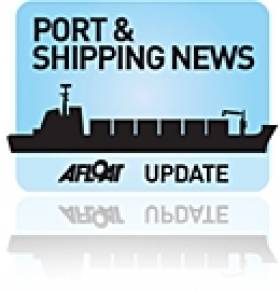Displaying items by tag: DryBulkers
Speaking at the ceremony Mr. Murphy commented: "d'Amico Group are one of a leading number of firms that are driving investment in this sector in Ireland which is contributing to new employment and growth opportunities".
Entry of the new dry-bulkers marks another important chapter in the d'Amico Group's development since it established its Irish office in 2002, as the vessels are managed from its Dublin office under the Irish Tonnage Tax (ITT) regime.
Four more newbuilds are under construction in Korea, scheduled for delivery in 2012, and two under construction in Japan which are due in 2013. The latter ships represent a further investment in excess of US $310 million to the Italian company that began and grew as a family business in 1936.
To read more about this logon to the IMDO website and also www.damicoship.com
























































